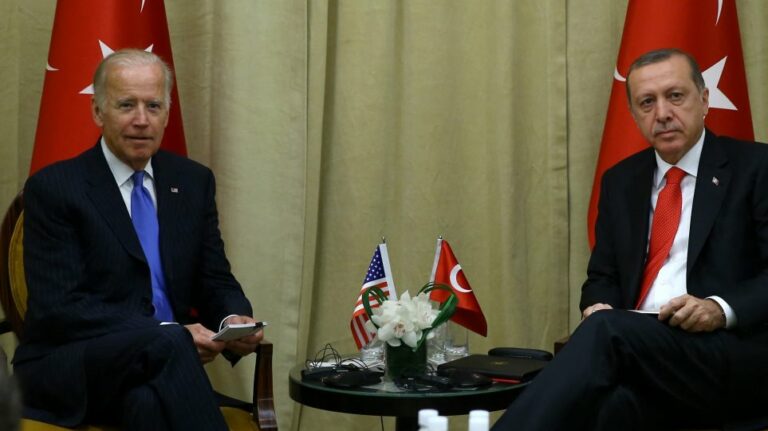“Read-outs” of presidential conversations with world leaders are hardly literary affairs. They usually consist of confirmation that the discussion took place and a short summary of the conversation in a few clipped sentences. And, like everything else in Washington, read-outs are part of a game that journalists, analysts and online commentators play to divine what was actually said, the rapport between leaders and the state of bilateral relations between the United States and the country whose president, prime minister or king was on the other end of the line.
Turkey-watchers inside the Beltway are eagerly awaiting reports from Monday’s planned conversation between President Joe Biden and Turkey’s President Recep Tayyip Erdogan on the sidelines of the NATO summit in Brussels. After the two leaders’ first phone call in April, the frostiness between the NATO allies jumped from the page of the two-sentence readout. It didn’t help that Biden was placing the call to warn Erdogan that the White House would be recognizing the 1915 Armenian Genocide, a step Turkey has vehemently opposed for decades.
PM Mitsotakis at NATO Summit: Greece is a pillar of stability in the Eastern Mediterranean
Biden’s decision to recognize the genocide, and his administration’s overall willingness to be tougher on Turkey, heightens the drama surrounding Monday’s highly anticipated meeting. Ankara’s relations with the United States, Europe and NATO have been on the skids for nearly five years, as Turkey has flexed its muscles by buying Russian weaponry, menaced NATO allies in the Eastern Mediterranean and cracked down on domestic opponents in a wave of repression. There is a growing sense inside the Beltway that official Washington has finally had enough with the Turkish government.
Read more: Politico
Ask me anything
Explore related questions





